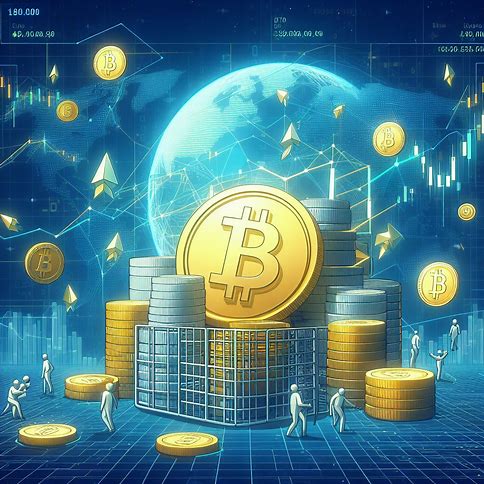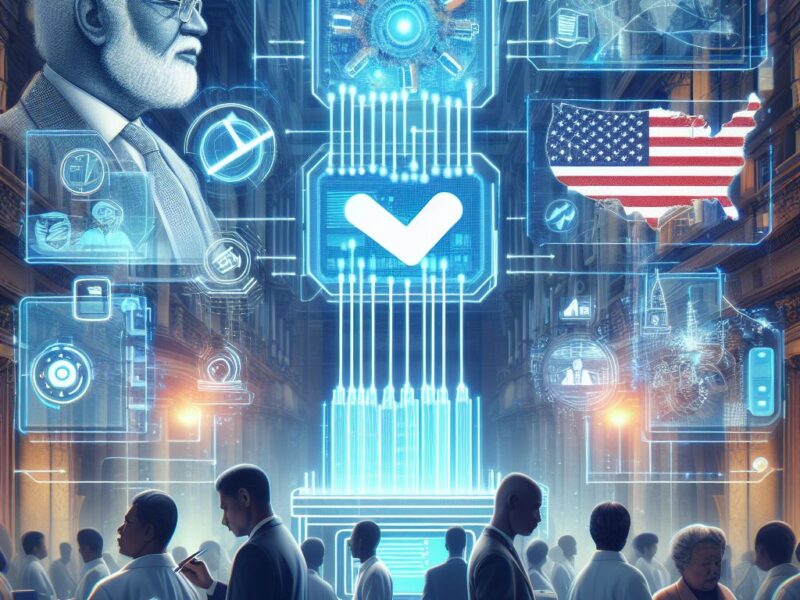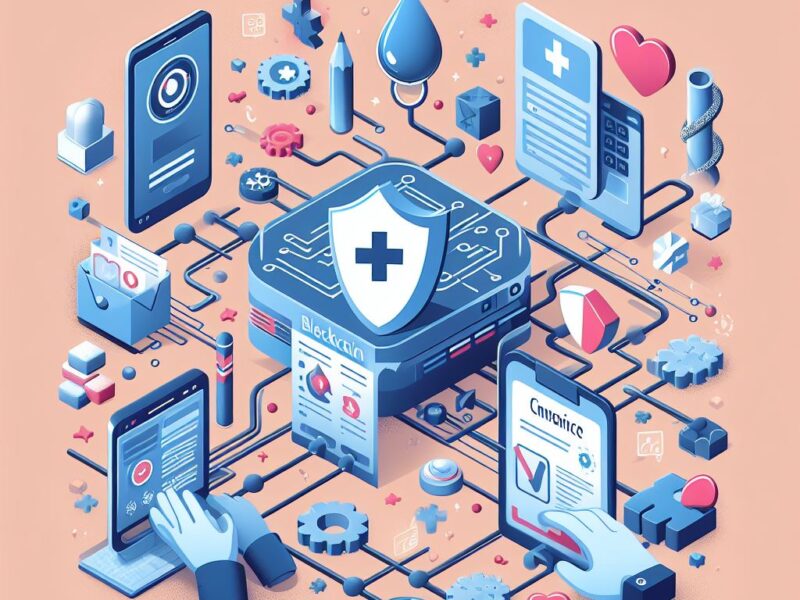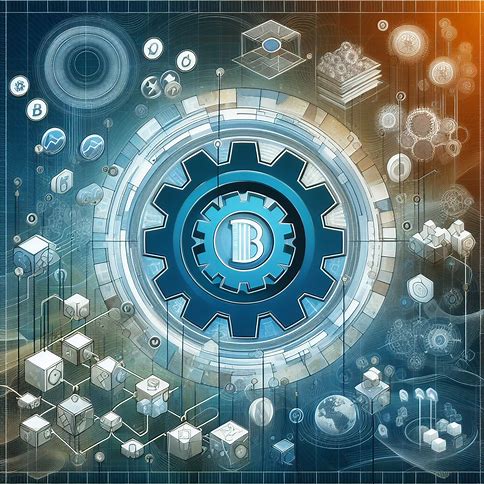DAOs have changed how organizations operate by enabling decentralized decision-making and resource allocation. As blockchain technology grows, numerous platforms have also sprouted up to support the creation and management of DAOs. Here are the best blockchain platforms for decentralized autonomous organizations (DAOs).
1. Ethereum
Ethereum is a smart contract platform that has become a go-to choice for building DAOs. Its greater ecosystem, extensive developer community, and wide range of tools make it an attractive option. With the recent upgrade to Ethereum 2.0, the platform offers improved scalability and efficiency for DAO operations.
Key features:
- Solidity programming language for smart contract development
- Decentralized application (dApp) ecosystem
- Large developer community and extensive documentation
2. Aragon
Aragon is a purpose-built platform for creating and managing DAOs. It provides a user-friendly interface and a suite of tools to ease DAO creation, governance, and financial management. Aragon’s modular approach allows for customization and flexibility in DAO structures.
Key features:
- Drag-and-drop DAO creation
- Built-in governance modules (voting, proposals, etc.)
- Integrated financial management tools
3. DAOstack
DAOstack is an open-source platform that enables the creation of scalable and resilient DAOs. It uses a unique governance framework called Holographic Consensus, which allows for efficient decision-making in large-scale DAOs. DAOstack also provides a set of modular components for building custom DAO applications.
Key features:
- Holographic consensus governance framework
- Modular architecture for customization
- A reputation-based voting system
4. Colony
Colony is a platform that focuses on enabling decentralized collaboration and task management within DAOs. It provides a framework for creating and managing teams, assigning tasks, and distributing rewards based on contributions. Colony’s reputation system ensures fair compensation and incentivizes active participation.
Key features:
- Task management and collaboration tools
- Reputation-based reward distribution
- Modular and extensible architecture
5. Moloch DAO
Moloch DAO is a minimalist platform designed for efficient resource allocation within DAOs. It uses a “ragequit” mechanism, allowing members to exit the DAO and take their proportional share of the treasury if they disagree with a decision. This helps maintain alignment and reduces the risk of internal conflicts.
Key features:
- Simple and efficient design
- “Ragequit” mechanism for member exits
- Focus on resource allocation and grants.
6. Snapshot
Snapshot is a decentralized voting platform that enables off-chain governance for DAOs. It allows organizations to create and participate in governance proposals without incurring high gas fees. Snapshot integrates with various blockchain platforms, making it a tool for DAO decision-making.
Key features:
- Off-chain voting for cost-efficiency
- Integration with multiple blockchain platforms
- A user-friendly interface for proposal creation and voting
7. Gnosis Safe
Gnosis Safe is a multi-signature wallet and governance platform that provides secure asset management for DAOs. It allows for the creation of multi-signature wallets, where multiple signatories are required to approve transactions. Gnosis Safe also integrates with other DAO tools, enabling easy governance and financial operations.
Key features:
- A multi-signature wallet for secure asset management
- Integration with various DAO platforms
- Modular design for customization
8. Syndicate
Syndicate is a platform that simplifies the creation and management of investment DAOs. It provides a framework for launching and operating decentralized investment clubs, enabling groups to pool capital and make investment decisions collectively. Syndicate offers a range of tools for portfolio management, voting, and investor relations.
Key features:
- Streamlined setup for investment DAOs
- Portfolio management and tracking tools
- Investor communication and reporting features.
Related: Everything You Need To Know About Ethereum Blockchain
9. DAOhaus
DAOhaus is a no-code platform for launching and managing DAOs. It offers a user-friendly interface and pre-built templates for various DAO types, making it accessible to a wider audience. DAOhaus supports multiple blockchain networks and provides a suite of tools for governance, treasury management, and member coordination.
Key features:
- No-code DAO creation with customizable templates
- Support for multiple blockchain networks
- Integrated tools for governance and treasury management
10. Orca Protocol
Orca Protocol is a permissionless platform for creating and managing DAOs. It offers a flexible framework for designing custom DAO structures and governance models. The Orca Protocol utilizes a liquid democracy model, enabling token holders to delegate their voting power to trusted representatives.
Key features:
- Permissionless DAO creation
- Flexible governance models, including liquid democracy
- Modular architecture for customization
Key Takeaway
1. Ethereum, the pioneer of smart contract platforms, offers a robust ecosystem, an extensive developer community, and a wide range of tools for building DAOs.
2. Aragon provides a user-friendly interface and a suite of tools to streamline DAO creation, governance, and financial management, making it an attractive choice for organizations seeking simplicity and ease of use.
3. DAOstack utilizes a unique governance framework called Holographic Consensus, enabling efficient decision-making in large-scale DAOs while also providing a set of modular components for building custom DAO applications.
4. Colony focuses on enabling decentralized collaboration and task management within DAOs, using a reputation system to ensure fair compensation and incentivize active participation.
5. Snapshot, a decentralized voting platform, enables off-chain governance for DAOs, allowing organizations to create and participate in governance proposals without incurring high gas fees.
6. When choosing a blockchain platform for your DAO, it’s crucial to consider factors such as ease of use, customization options, scalability, and the availability of developer resources to ensure the platform aligns with your organization’s needs and goals.
Frequently Asked Questions
1: What is a decentralized autonomous organization (DAO)?
A decentralized autonomous organization (DAO) is a type of organization that is run through a set of self-executing rules encoded in smart contracts on a blockchain network. DAOs enable decentralized decision-making, transparency, and automated governance processes, eliminating the need for traditional hierarchical structures.
2. What are the benefits of using a blockchain platform for DAOs?
Blockchain platforms provide a secure, transparent, and immutable foundation for DAOs. They enable trustless collaboration, decentralized governance, and the automated execution of rules and decisions. By leveraging blockchain technology, DAOs can operate efficiently, reduce costs, and maintain a high level of transparency and accountability.
3. How do I choose the right blockchain platform for my DAO?
When selecting a blockchain platform for your DAO, consider the following factors:
- Ease of use and user experience
- Customization options and flexibility
- Scalability and performance
- Developer community and resources
- Integration with other tools and platforms
- Alignment with your organization’s specific requirements.
4. Can I migrate my DAO from one blockchain platform to another?
Migrating a DAO from one blockchain platform to another can be complex and may require significant technical expertise. It’s essential to carefully plan and execute the migration process to ensure the integrity and continuity of your DAO’s operations. Some platforms may offer migration tools or services to facilitate the process, but it’s recommended to seek guidance from experienced professionals.
5. How can I ensure the security of my DAO?
To ensure the security of your DAO, consider the following best practices:
- Conduct thorough smart contract audits to identify and fix vulnerabilities.
- Implement multi-signature wallets for managing funds.
- Establish clear governance processes and emergency protocols.
- Educate DAO members about security best practices.
- Regularly monitor and update your DAO’s infrastructure.
- Collaborate with reputable










